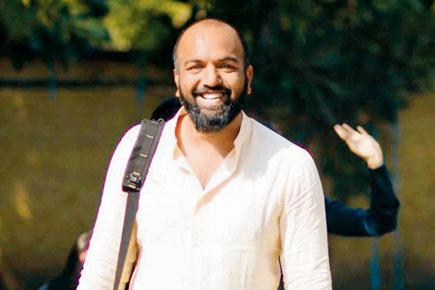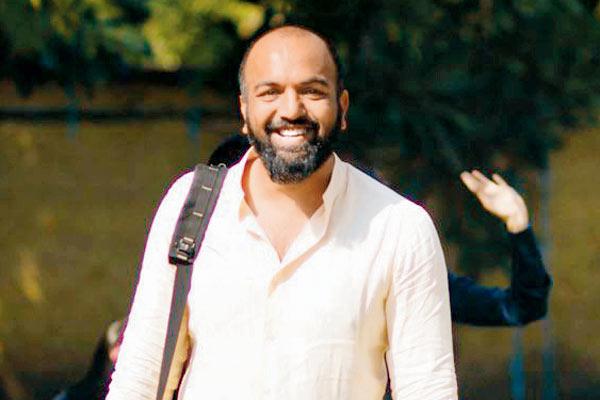Ayaz Basrai, the man responsible for giving Indian spaces a global touch, talks about his current project, Future Cities, which critiques the prevalent idea of smart cities and looks at people-centred solutions for a better future

He IS cool, edgy and constantly wants to change things around him. Ayaz Basrai, co-founder, The Busride Design Studio, who is known for designing spaces such as the Smoke House Deli and Café Zoe, is exploring newer avenues.

Ayaz Basrai
ADVERTISEMENT
As part of a project titled Future Cities, which was conceptualised in Ahmedabad earlier this year, 35 creative practitioners, researchers and experts from India and UK came together to re-interpret the concept of cities and look at practical and people-centred solutions at how we want our future cities to be. Basrai, who has been brought up in Mumbai, has based his research on trends in Mumbai over a period of 200 years. He presented his conclusions at the UnBox festi val which brings together artists from various fields to discuss socially relevant issues among other activities.
Excerpts from an interview:
Q. Tell us about your research project on Mumbai as part of Future Cities.
A. The city has always been the context for most of our studio’s (Busride Studio) work, so our roots are essentially Bombay. This particular project is a spin-off of a two-week intense session I attended in Ahmedabad where people from various creative fields came together to explore and innovate around the concept of Future Cities. When I began the session, I had a few questions about Mumbai — with the
pedestrian issue in Bandra being the highlight (the issue talks about the lack of walking space in the city) and a general interest in the future of the cities, but close to the end of the session I realised that this initiative is a great way to focus your efforts.
Q. You have traced the trends of Mumbai over a period of 200 years. Can you share some of the striking conclusions that you spoke about at the UnBox festival?
A. The trend research comes from a new way of trying to imagine cities. We often get trapped into believing that cities are static, or they exist as an end to longer processes of evolution. It’s important to look at cities as dynamic, fluid entities, where forces can be modified and shaped to create more meaningful directions for the future. We have the luxury of sitting on 2,000-year-old histories in most Indian cities, and the most damaging processes are the ones that sever these connections insensitively. In an effort to understand what was going on, we started creating and charting various things on a 200-year timeline.
We’ve mapped population growth, communal riots, real estate and reclamation, philanthropy, the rise of the textile and film industries, among others. We then look at these data points as a springboard, to try to come up with meaningful inquiries, and sustainable directions for the growth of cities.
Q. Your focus is on cities of the future — how would you like to see governments deal with the idea of smart cities?
A. The current idea of smart cities borrow heavily from sales imagery, which appear glossy but are deceptive. What we in effect are creating are large urban sprawls, and potential ghost towns, like Ordos and Dantu in China. We strongly believe that cities exist only where continuous flow of goods, materials, processes, stories and myths, people and money exists. The city is a node, or a valve that accelerates these flows. The useful inquiries lie in the domain of adaptive re-use, working with our history and not against it, accentuating and incrementally increasing, not flattening and rebuilding devoid of context.
To read the research, Log on to www.facebook.com/busridedesignstudio
 Subscribe today by clicking the link and stay updated with the latest news!" Click here!
Subscribe today by clicking the link and stay updated with the latest news!" Click here!







